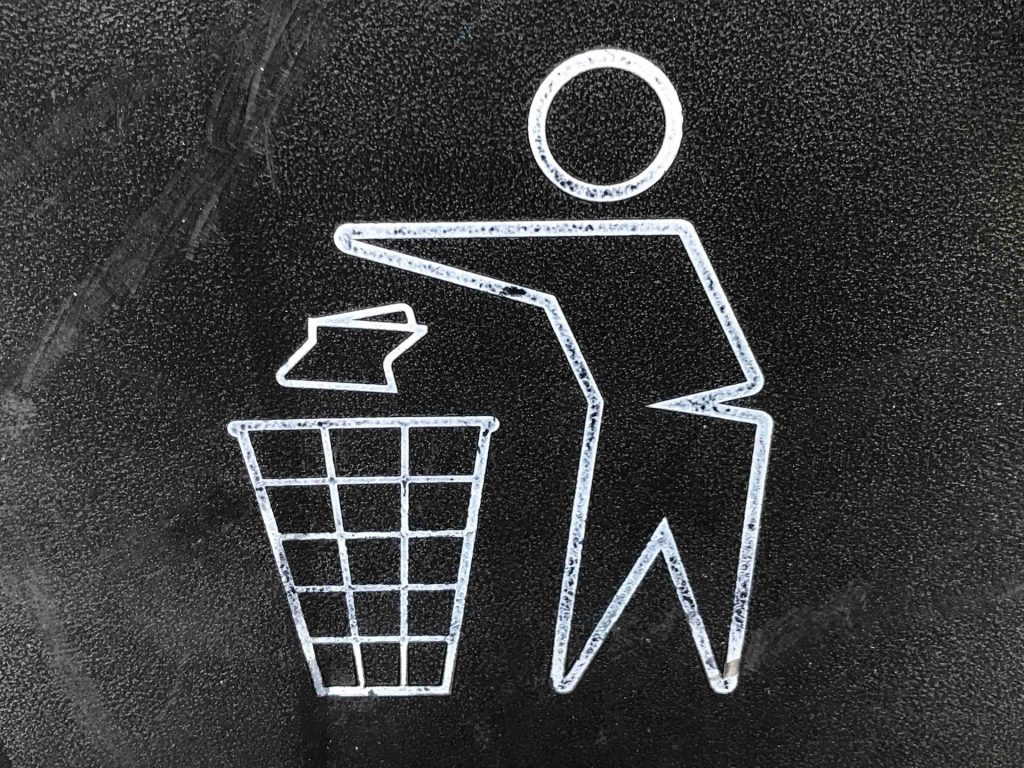Recently I’ve been reading Adam Minter’s book Secondhand: Travels in the New Global Garage Sale. This book is all about what happens to our used items when we donate them to a place like Goodwill. Minter discusses what’s best for the global economy, the environment, and individuals as it relates to how we treat our stuff. In the context of this he highlights that the phrase “reduce, reuse, recycle” is written in order of what is usually best.
In other words, we should reduce our use first, reuse what we can, and recycle as a last resort. I’ve been thinking a lot about this as it applies to individual financial decisions. I used to live by this practice, but I’ve gotten away from it in recent years. I want to get back to it. It’s fiscally smart.
Reduce to Save Money
The thing that I know, but have gotten away from, is that the best thing you can do to save money is to not spend it in the first place. Minter’s book explores all of the ways that people in developed nations and/or positions of financial privilege have gotten in the habit of regularly buying brand new items.
We buy so many things we don’t need. I am not much of a consumer compared to a lot of people I know. However, I look around my home (or at my Amazon credit card bill) and I see that I’m buying more than I need. I certainly don’t need all of the clothes I’ve purchased in the past few years. The number one thing that I could do is to review my intended purchases before making them. I could easily reduce my spending by asking myself honestly, “do I need this?”
Minter also notes that so many things made today are simply not made to last. I could spend a little bit more on the items that I actually need in order to reduce replacement costs over time. These are obvious things that generations before ours definitely relied upon. We’ve gotten away from that. But I want to reduce, reuse, recycle with an eye towards reducing first!
Reuse to Save Money
If we purchase things that can be repaired – or at least upcycled – then we can continue to use those things for a long time to come. Some things aren’t made that way. I never thought I would be someone who purchases a new cell phone every year or two. Yet, here I am, with the iPhone 11 next to me on my bed. (I’m typing on a new MacBook and there’s a relatively new iPad next to me as well.)
The truth is I’m probably going to keep buying these tech items that get “old” so fast and beg to be replaced. But the book at least inspired me to consider looking into repairs to see if they’re a viable option so I can reuse a broken item rather than replacing it immediately.
More than that, it reminds me that there are so many other items that I do know how to reuse. Perhaps haven’t been diligent about that lately. For example, I love this specific pudding that comes in a glass jar. I could certainly reduce my purchasing of it, and I probably will. Buying single-serving items in packages doesn’t make financial or environmental sense. But when I do buy those, I can reuse the glass jars. Instead, I usually recycle them. But if I can make use of them in a way that allows me to not purchase another container then I certainly should.
Recycling
Minter’s point in the book is that oftentimes people with disposable income will quickly recycle items without choosing to reduce/reuse first. Knowing that our items will get more use by someone else makes us feel better about not using them. Nevertheless, it’s not the best option for the environment or for our pocketbooks. It’s the last part of reduce, reuse, recycle for a reason.
That doesn’t mean recycling is bad. It’s great for a lot of reasons. In fact, you can sometimes make some money off of recycling. There is the classic example of collecting aluminum cans to sell by the pound. I don’t do that anymore, but I’ll trade in my old phone or tablet for a discount on a new one.
So recycling can be financially better than just throwing something away. It’s almost always the more environmentally-friendly choice. However, it’s worth it to reduce or reuse before you recycle.
How do you save money with the reduce, reuse, recycle practice?
Kathryn Vercillo is a professional writer who loves to live a balanced life. She appreciates a good work-life balance. She enjoys balance in her relationships and has worked hard to learn how to balance her finances to allow for a balanced life overall. Although she’s only blonde some of the time, she’s always striving for total balance. She’s excited to share what she’s learned with you and to discover more together along the way.
